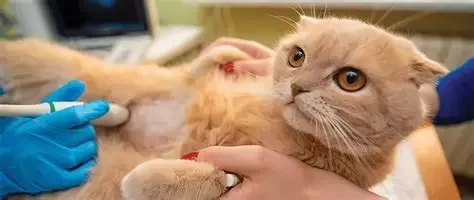- 1 - Understanding Feline Organ Degeneration
- 2 - Early Warning Signs You Should Never Ignore
- 3 - Commonly Affected Organs in Cats
- 4 - Diagnosis: How Vets Identify Organ Degeneration
- 5 - Treatment Options and Long-Term Management
- 6 - Home Care and Lifestyle Adjustments
- 7 - Real Case: How Early Detection Saved a Cat’s Life
- 8 - Preventive Measures for Feline Organ Health
- 9 - When to Visit Hidden Brook Veterinary for Evaluation
Understanding Feline Organ Degeneration
What it means for your pet’s health
Organ degeneration in cats refers to the gradual decline of organ function, often seen in aging pets or those exposed to chronic conditions. The most common organs affected include the kidneys, liver, and heart. These organs slowly lose their ability to filter toxins, metabolize nutrients, or pump blood effectively, leading to fatigue, appetite loss, and visible distress.
Why early awareness matters
Unlike humans, cats instinctively hide symptoms of illness. By the time signs are visible, the disease may already be advanced. That’s why understanding how to recognize and treat pet feline organ degeneration early can literally extend your cat’s life by years.
Early Warning Signs You Should Never Ignore
Subtle behavioral changes
Your cat might sleep more, eat less, or seem unusually withdrawn. Changes in grooming habits or hiding behavior often indicate discomfort. A sudden aversion to favorite foods can be a red flag for liver or kidney issues.
Physical symptoms
Common indicators include persistent vomiting, weight loss, excessive thirst, or a dull coat. Pay attention to litter box changes—frequent urination or very dark urine may suggest internal strain.
Why monitoring matters
Keeping a daily log of appetite, energy, and hydration can help your vet identify patterns before they escalate into crises.
Commonly Affected Organs in Cats
1. Kidneys
Kidney degeneration is among the most frequent chronic conditions in senior cats. The kidneys struggle to filter toxins, causing increased thirst and urination. Left untreated, it leads to uremia—a dangerous buildup of waste in the blood.
2. Liver
The liver processes fats and detoxifies chemicals. When degeneration sets in, you may see yellowing of the eyes or gums, appetite loss, and vomiting. Cats with fatty liver syndrome require immediate attention to reverse the condition.
3. Heart
Feline heart disease often hides behind mild fatigue or breathing changes. Over time, poor circulation affects other organs, worsening overall degeneration.
Diagnosis: How Vets Identify Organ Degeneration
Clinical evaluation
Your veterinarian will begin with a physical exam, checking hydration, pulse, and abdominal tenderness. They may ask about recent changes in appetite or activity levels.
Laboratory testing
Bloodwork and urinalysis help detect elevated toxin levels, enzyme imbalances, and reduced kidney filtration rates. X-rays or ultrasounds may be used to examine organ size and structure.
Specialized tools at Hidden Brook Veterinary
At Hidden Brook Veterinary, digital imaging and advanced lab testing allow for early, accurate diagnosis. Catching degeneration before severe symptoms appear significantly improves treatment outcomes.
Treatment Options and Long-Term Management
Medication and fluid therapy
Depending on the organ affected, vets may prescribe medication to control symptoms, lower blood pressure, or improve metabolic balance. Intravenous or subcutaneous fluids can help flush toxins and maintain hydration.
Diet modification
Low-protein or low-sodium diets support kidney and liver health. Nutritional supplements with omega-3s, B-vitamins, and antioxidants can reduce inflammation and support recovery.
Ongoing monitoring
Regular follow-ups—typically every 3 to 6 months—help track progress. Adjusting medication and diet based on lab results prevents further degeneration.
Home Care and Lifestyle Adjustments
Comfort through environment
Ensure a calm, quiet space with easy access to food, water, and litter. Cats with organ issues tire easily, so minimize stress and provide soft bedding in warm spots.
Hydration and diet consistency
Encourage frequent hydration through water fountains and wet food. Avoid sudden dietary changes, as they can strain weakened organs.
Emotional connection
Even during illness, cats crave routine and affection. Gentle grooming and calm talk can ease anxiety and strengthen recovery bonds.
Real Case: How Early Detection Saved a Cat’s Life
Milo’s story
Milo, a 10-year-old tabby, began showing mild appetite loss and dull fur. His owner brought him to Hidden Brook Veterinary for testing, which revealed early kidney degeneration. With hydration therapy and a renal-support diet, Milo regained his energy. Two years later, he still enjoys sunny naps and playful evenings—a testament to early recognition and treatment.
Preventive Measures for Feline Organ Health
Routine wellness checks
Annual exams for younger cats and biannual visits for seniors help identify silent changes in organ function. Prevention always costs less—emotionally and financially—than crisis care.
Nutrition and supplements
Feed high-quality protein sources and avoid filler-heavy diets. Consider taurine and antioxidant blends to protect organ cells from oxidative stress.
Environmental enrichment
Engaged cats live longer. Stimulating toys, climbing spaces, and sunlight reduce stress hormones, which can slow degenerative processes.
When to Visit Hidden Brook Veterinary for Evaluation
Know the right time
If your cat displays persistent vomiting, rapid weight loss, or unusual lethargy, don’t wait. Early veterinary evaluation can mean the difference between management and irreversible damage.
Expert support and compassionate care
At Hidden Brook Veterinary, specialists provide comprehensive organ health evaluations, personalized diet plans, and ongoing monitoring programs. They combine medical precision with empathy, ensuring your feline companion gets the best possible chance at recovery and comfort.
Take proactive steps
Your pet depends on you for vigilance. Understanding how to recognize and treat pet feline organ degeneration is the first step toward giving your cat the long, healthy life it deserves.












